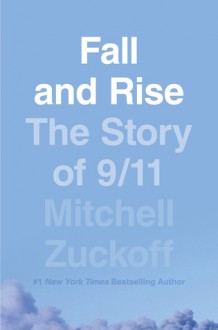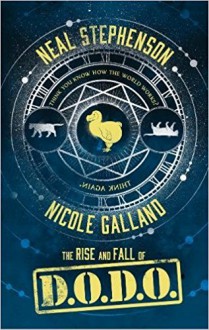

This was difficult. A subject close to our hearts and home, but so very painful to listen to, even after 18 years. You would be hard-pressed to find anyone alive at the time without a connection to these events, but if that is the case, this book will change that. Zuckoff tells the stories for all of those who no longer can, and, even though I cried through most of it, I felt an obligation to finish. Never forget.
I'm going to split up my submissions for the crowdsourced history reading list initiated by Chris into several topical lists (with cross references), beginning with the authors and book series I'm submitting in toto, as well as some basic reference material. So:
ALL BOOKS BY ...
* Antonia Fraser (women's history, Tudors & Stuarts)
* Ian Mortimer (British history, particularly Middle Ages)
* Dan Jones (ditto)
* Stanley Wells (Shakespeare -- everything from biographies and history to criticism)
* John Julius Norwich (British and Mediterranean history)
* Christopher Hibbert (ditto)
* Jared Diamond (intersection of (world) history, geography, and sociology)
SERIES
* Will Durant, Ariel Durant: The Story of Civilization (11 volumes, Ancient Orient to Age of Napoleon)
* Various Authors: Fischer Weltgeschichte (published elsewhere as Weidenfeld & Nicolson Universal History / Siglo XXI Editores Historia Universal / Storia Universale Feltrinelli, and Bordas / Fayard Histoire Universelle, respectively) (36 vols., prehistory to present day)
BASIC REFERENCE
* Oxford Encyclopedia of World History
* Putzger Atlas der Weltgeschichte (unfortunately, to the best of my knowledge not translated into English -- but for my money, one of the best historical cartographical works in existence)

Honestly by the end I didn't care. This has taken me ages to finish and if it wasn't for a flu and determination I'd have a sneaking suspicion this would never have been finished.
I've seen a lot of reviews where people either love it or dislike it, very little middle ground on this one (so if you're reading it and you're meh about it, just move on)
Basic plot is a medieval linguist recruited into a secret government organisation who work with witches to do time travel and when they annoy the wrong person it all goes very pear shaped.
It's clever but I just didn't feel a lot of joy in reading it, more I wanted it to be done.

If the primary author’s name sounds familiar, she is the Nadiya from Great British Baking. This is her first novel, and it was written with Ayisha Malik.
The book centers on four sisters – Fatima, Bubblee, Farah, and Mae. Bubblee and Farah are twins. The title is somewhat misleading as what secrets there are not really the sister’s (honesty, the one you think might be Bubblee’s never shows) but those of their family. Additionally, the book is almost wrapped about too neatly – though a couple plot threads are left, satisfying loose. There are a couple places where you are wondering – wow, really would that happen – but not too many.
There is, however, a charm about the book. Some of that has to done with the fact that Hussain doesn’t really seem to think that the reader will consider the plot twists as twists or surprises. So, there is no “see, I great the author has tricked you” feeling that is especially annoying when the author has not in fact tricked you. None of that.
But the bulk of the charm rests on the sisters. With the possible exception of Farah, all the sisters are well drawn. Their interactions are beautifully rendered. Even the supporting characters – from the nudist neighbors to the father who puts hedge cuttings in the smoothie – have life. You read the book for the characters and not the plot. It is almost like watching a nice little series on the tv.
Is it the deepest novel I have ever read? No. But it was a wonderful way to spend an afternoon.